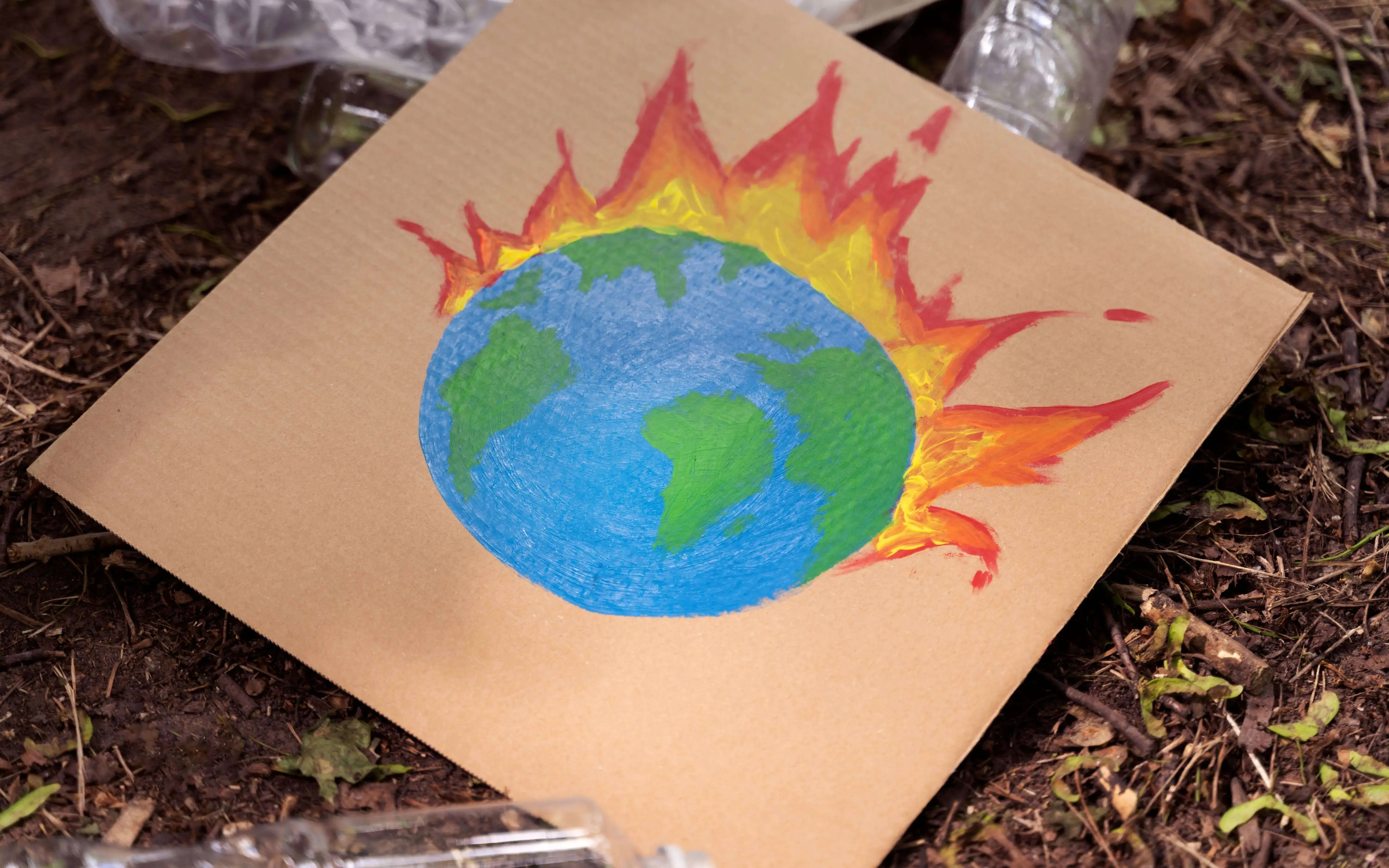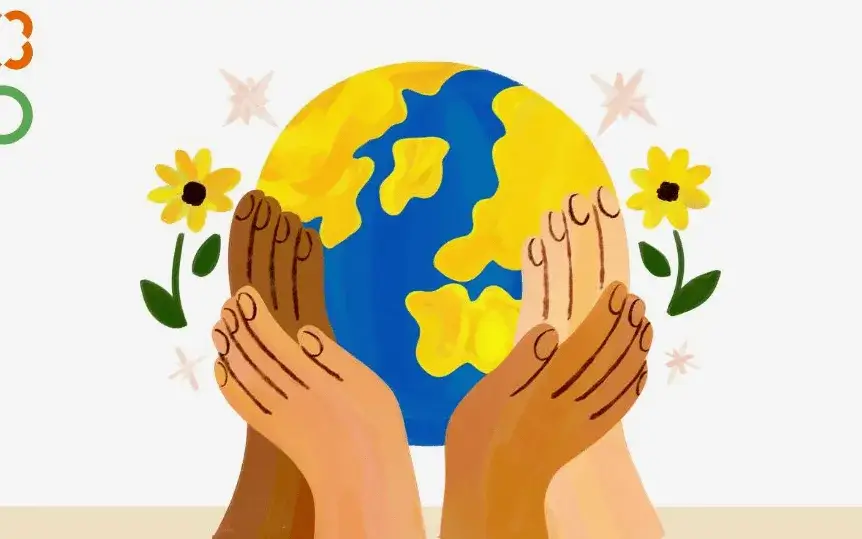A report by the United Nations University’s Institute for Environment and Human Security warns of the urgent need to make decisions that address the root causes of the climate crisis.
“Society is at an impasse; for years, scientists have warned us about the damage we’re doing to our planet and how to stop it, yet we’re not taking meaningful action.” These words from Shen Xiaomeng, professor and director of the UN University’s Institute for Environment and Human Security, are yet another alarm in the face of worsening threats to the planet such as the climate emergency, biodiversity loss, pollution, and rising inequality.
The warning is clear and direct: time is running out. The moment is critical. The climate crisis is worsening, and major decisions cannot be postponed indefinitely. This is the core message of the latest report by the UN University’s Institute for Environment and Human Security (UNU-EHS), which goes beyond just raising awareness and proposes five deep changes that must be implemented globally to address the underlying causes of the problem.
The document, titled 'Interconnected Disaster Risks 2025', presents the “Theory of Deep Change,” a framework based on five major transformations that must urgently take place to “save the planet.” The report argues that most current solutions are “merely superficial adjustments” and that we need to shift the perspectives and thought patterns that have perpetuated today’s crises in order to enable “lasting change.”
“Again and again, we see the danger, yet we continue walking toward it; in many cases, we approach the cliff with our eyes wide open. We know how to turn around, and yet we walk as if we don’t see it,” warns the UNU-EHS director.
Rather than deepening the diagnosis, the focus is now on seeking solutions. In this light, the study identifies five core areas where change is essential to reduce risks:
- Rethink Waste
The current waste management model is clearly unsustainable: each year, we generate two billion tons of household waste — enough to fill a line of garbage trucks circling the equator 25 times. If no action is taken, this figure could double by 2050.
The report calls for a fundamental shift toward a circular economy that prioritizes durability, repair, reuse, and material recovery. For example, producing recycled aluminum requires 95% less energy than creating it from raw materials.
A standout example cited in the report is the Japanese town of Kamikatsu, which, through composting, recycling, clothing exchange, and waste sorting, has achieved an 80% recycling rate — four times the national average.
The report also warns that failing to keep materials in use today could threaten their availability in the future. For instance, lithium used in phone batteries is rarely reused and could run out by 2050, with over 75% currently ending up in landfills unless the production and recovery system is reformed.
- Reconnect with Nature
The document advocates for a change in worldview: humanity must stop living apart from nature and begin to coexist with it. This means reversing our dominant and controlling relationship with the natural world, which has already altered 95% of Earth’s land surface and threatens one million species of plants and animals. Since 1970, populations of amphibians, birds, fish, mammals, and reptiles have declined by 70%, and 45% of flowering plants are at risk of extinction.
This imbalance not only impoverishes biodiversity but also undermines essential resources for human survival — clean air, water, and fertile soil — while endangering our health and food security.
One powerful example of how we reshape nature to meet human needs is river channelization, where rivers are forced into straight lines to improve navigation, create farmland, or protect cities from floods.
The study calls for a paradigm shift, urging us to stop viewing nature as a subordinate resource. It proposes integrating natural processes — such as river meanders and flood cycles — into landscape and infrastructure design, supported by global regulatory mechanisms, economic valuation of nature, and even the recognition of rights for non-human beings.
- Reconsider Responsibility
The current global crisis isn’t just a matter of natural resources — it’s also about justice and solidarity. The UNU report stresses the need to move beyond individualism toward collective responsibility. Though the planet is home to over 8 billion people, resources and opportunities are deeply unequally distributed.
A telling example of this injustice: the poorest 50% of the world’s population emits just 12% of greenhouse gases but will bear 75% of the income losses caused by climate change.
The study criticizes so-called "carbon colonialism", seen in flawed mechanisms like carbon offsetting, which allow wealthy countries to keep polluting while planting trees in poorer nations in the Global South.
We must redefine global responsibility, recognize the planet as a shared home, and embrace collective solutions — rather than exporting harm to other regions — if we are to tackle the global climate emergency and secure the planet’s future.
- Reimagine the Future
The premise is simple: today’s decisions shape the lives of future generations. The report urges us to move beyond short-term thinking, which overlooks the long-term consequences of our actions.
A stark example is nuclear energy. While it helps reduce carbon emissions, it also produces radioactive waste that lasts hundreds of thousands of years — and is currently stored temporarily with serious containment risks.
Protecting the future requires a shift in mindset. The report highlights the example of the Iroquois people, who make decisions based on their impact on the next seven generations.
Countries like Finland, Chile, the Philippines, and Iceland are already adopting long-term thinking by establishing committees to safeguard future generations’ interests and ensure today’s policies promote sustainability and intergenerational well-being.
- Redefine Value
While indicators show improvements in life expectancy, well-being, and wealth, these gains are unevenly distributed. The richest 10% hold 76% of global wealth, while the poorest half owns just 2%.
At the same time, we’re pushing the planet to its limits and undervaluing vital sectors, like unpaid care work, which amounts to 12.5 billion hours daily — worth over $10 trillion per year.
To move toward a life-centered and sustainable world, the report welcomes initiatives like the “right to disconnect”, already law in over 20 countries, and green prescriptions, which demonstrate that well-being, environmental resilience, and equity can be prioritized over pure economic growth.








Add new comment